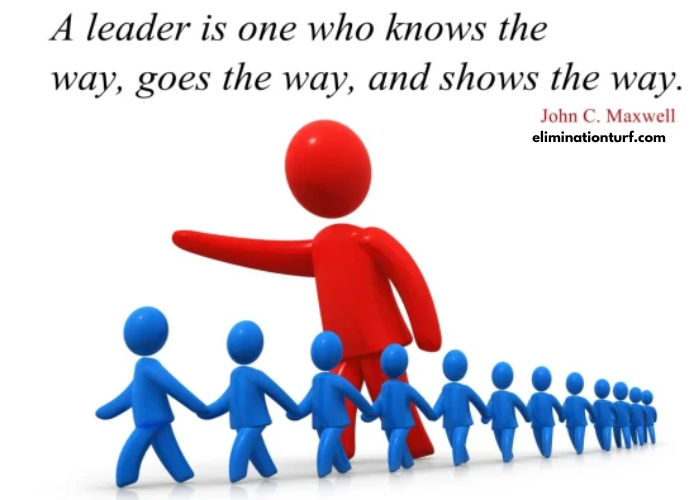Leadership plays a crucial role in the success of any business. Effective leaders inspire their teams, drive innovation, and ensure the sustainability of an organization. In today’s dynamic business environment, possessing the right leadership skills is more critical than ever. This article explores key leadership skills that contribute to business success and provides actionable insights for aspiring and experienced leaders alike.
Understanding Leadership in Business
What is Effective Leadership?
Effective leadership is the ability to influence and guide individuals or teams toward achieving a common goal. It involves decision-making, strategic thinking, emotional intelligence, and communication skills. A strong leader not only drives performance but also fosters a positive workplace culture.
Why Leadership is Essential for Business Success
Leadership directly impacts productivity, employee engagement, and organizational growth. Companies with strong leadership are more likely to innovate, adapt to market changes, and achieve long-term success. Effective leaders create a vision, set goals, and motivate their teams to work towards them.
Essential Leadership Skills for Business Success
1. Communication Skills
Clear and effective communication is the foundation of good leadership. Leaders must be able to convey their vision, expectations, and feedback clearly to employees and stakeholders.
How to Improve Communication Skills:
- Practice active listening.
- Use clear and concise language.
- Encourage open and honest feedback.
- Adapt communication styles based on the audience.
2. Emotional Intelligence (EQ)
Emotional intelligence is the ability to understand and manage one’s emotions while being empathetic toward others. Leaders with high EQ build strong relationships and create a supportive work environment.
Key Components of Emotional Intelligence:
- Self-awareness – Recognizing personal emotions and their impact on others.
- Self-regulation – Managing emotions effectively in different situations.
- Empathy – Understanding and considering employees’ feelings.
- Social skills – Building positive relationships and team dynamics.
3. Decision-Making Skills
Leaders are constantly faced with critical decisions that affect their business. Effective decision-making involves assessing risks, analyzing data, and considering various perspectives before taking action.
Tips for Effective Decision-Making:
- Gather all relevant information.
- Analyze the potential impact of each decision.
- Seek input from team members and experts.
- Take calculated risks when necessary.
4. Adaptability and Flexibility
The business landscape is continuously changing. Leaders must be adaptable to new technologies, market shifts, and unexpected challenges.
Ways to Develop Adaptability:
- Stay informed about industry trends.
- Be open to feedback and new ideas.
- Encourage a culture of innovation within the organization.
- Learn from past mistakes and adjust strategies accordingly.
5. Strategic Thinking
Strategic thinking enables leaders to plan for the future, identify opportunities, and address potential threats.
How to Develop Strategic Thinking:
- Set long-term goals and create a roadmap to achieve them.
- Analyze competitors and market trends.
- Identify strengths, weaknesses, opportunities, and threats (SWOT analysis).
- Make data-driven decisions.
6. Conflict Resolution Skills
Workplace conflicts can hinder productivity and lower morale. Effective leaders must be skilled at resolving conflicts fairly and efficiently.
Strategies for Resolving Conflicts:
- Address issues promptly.
- Encourage open dialogue between conflicting parties.
- Focus on finding a win-win solution.
- Maintain a neutral and professional approach.
7. Delegation and Empowerment
Great leaders understand the importance of delegation. Empowering employees by assigning responsibilities enhances productivity and team morale.
Best Practices for Delegation:
- Assign tasks based on team members’ strengths.
- Provide clear instructions and expectations.
- Trust employees to complete tasks without micromanaging.
- Offer guidance and support when needed.
8. Inspirational Leadership
Leaders who inspire their teams create a motivated and engaged workforce. Inspirational leaders lead by example, demonstrate integrity, and recognize achievements.
How to Be an Inspirational Leader:
- Share a compelling vision.
- Recognize and reward employees’ contributions.
- Show enthusiasm and passion for your work.
- Foster a positive and inclusive work environment.
9. Resilience and Stress Management
The ability to handle setbacks and stress is crucial for leadership success. Resilient leaders stay focused during crises and find ways to overcome challenges.
Ways to Build Resilience:
- Maintain a positive mindset.
- Develop problem-solving skills.
- Practice mindfulness and stress-relief techniques.
- Seek support from mentors and peers.
The Impact of Leadership on Organizational Growth
Increased Employee Engagement
Strong leadership fosters a culture of trust and collaboration. Employees who feel valued and supported are more engaged and productive.
Improved Innovation and Creativity
Effective leaders encourage innovation by creating an environment where employees feel safe to share new ideas.
Higher Retention Rates
Good leadership reduces employee turnover by creating a workplace where employees feel motivated and appreciated.
Better Financial Performance
Companies with strong leadership tend to outperform competitors in revenue growth, customer satisfaction, and market expansion.
Conclusion
Leadership is a critical factor in business success. By developing skills such as communication, emotional intelligence, decision-making, and strategic thinking, leaders can drive their organizations toward growth and sustainability. Whether you are a new or experienced leader, continuous learning and adaptation are key to excelling in today’s competitive business environment.
Investing in leadership development not only benefits individuals but also strengthens organizations, leading to long-term success in the ever-evolving corporate world.
